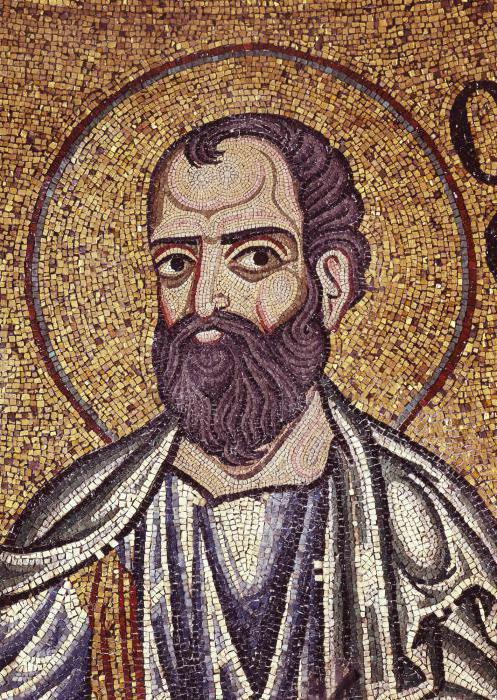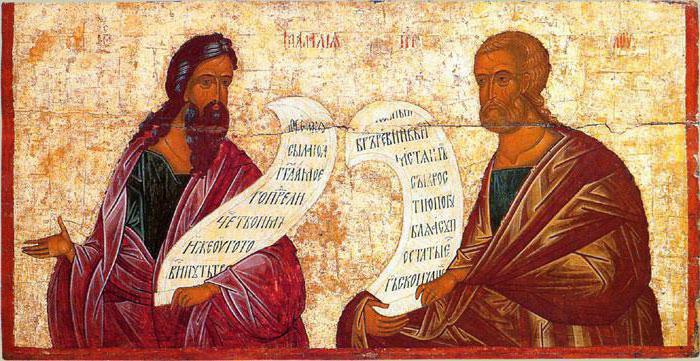In everyday life, the word "prophet" denotes the personality of a person who predicts the future. But in the Orthodox faith, these people performed a more serious and important function. We learn about the purpose of God's messengers, and also find out who the prophet Malachi is, whose prayer is also recited.
Bible prophetic activity
Through their speeches, the prophets informed the chosen people of Israel the will of the Most High, and also proclaimed the coming of the Messiah (Savior). Their activities are described in the largest part of the Bible, that is, in the Old Testament. The role played by the prophets in the confessional development of Israel was great. The Old Testament suggested a two-way relationship of man with God. Prophets are sources that conveyed the revelations of the Lord to the chosen people, that is, the Israelites. The teaching that the prophets brought to us, as a rule, consists of three elements characteristic of the Old Testament:
- faith in one God;
- moral conduct;
- waiting for salvation.
Prophetic activity takes place in Israel and Judea from the 8th to 4th century BC, although there are some prophets who lived before, for example, Samuel and Moses. The structure of the Old Testament included only 12 works of small prophets, as well as four creations of great prophets, although there were more. The 12 small prophets included Amos, Jonah, Avdey, Zechariah, Malachi, and others. Today you will find out who the prophet Malachi is and why he was called the "seal of the prophets."
Quick reference
The prophet Malachi refers to the 12 small biblical prophets. According to the Holy Scriptures, it says that Malachi is from the tribe of Zebulun. Passed away at a young age. His prophetic activity was at a time when the temple of Jerusalem was rebuilt again after the capture. This is approximately the year 400 BC. The Holy Prophet Malachi severely condemned people for lack of zeal in the sacrifices. He denounced the priests because they shied away from the faith, threatened them with God's judgment for blasphemy and various vices, and also clearly predicted the coming of the Savior, the appearance of John the Baptist and the speedy judgment of God. The memory of the prophet in the Orthodox Church is January 3 according to the old style, or January 16 according to the Gregorian calendar.
Life of the saint
The prophet Malachi lived a godly life. He led the people in admiration and surprise at the fact that his life was pure, like an angel of God. His name from the Hebrew language means "angel of the Lord." Since Malachi was called to prophetically serve, he became a zealous champion of faith, piety, and the law. When the Jews returned from captivity, they had many moral and religious problems, which became even greater due to the carelessness of priests. Looking at this picture, the prophet Malachi was indignant and upset, after which he had to menacingly speak out and denounce the people.

His speech was that they do not belong to God with due reverence and reverence, they make insufficient sacrifices. But he said to the priests that because of their wrong activity, people deviate from God's way, because they do not keep the commandments and are hypocrites. Thus, they dishonor God and succumb to temptations. He condemned the people for treacherously violating the covenants of fathers and ancestors, that husbands and their spouses do unjustly, reject their legal wife and live with foreign women. In his speeches, the Messenger of God threatened all people with the judgment of the Most High for various vices, including adultery, witchcraft and sorcerers, for making false oaths, for offending and oppressing orphans and widows, for violating and not obey the law of offering in temples.
His words touched the Jews because they spoke bold and bad words. It is as if serving God is in vain and useless, as if it makes no sense to keep the commandments. They said that the wicked, doing lawlessness, live better and have no troubles. In his activity, Malachi condemned human sins, and at the same time he saw the coming of the Savior, and before that - the appearance of the Forerunner and the speedy God's judgment for the wicked. He died at a young age, and was buried with his ancestors in the native village of Sufa. In Orthodoxy, he is called the "seal of the prophet" because he was the last of the Old Testament prophets.
Interpretation of the Prophet Malachi
The theological works of the saint have survived to this day. This book has four chapters that expose his prophetic speech, instructions to the people and priests. It contains the words of exposing the moral and moral defects of the Jewish people, as well as the threat of punishment by God.
The essence of his book is that he protests against a careless attitude to liturgical affairs. He especially scolds priests and Israelites who were not afraid of God and abandoned their lawful wives. Malachi wanted his speeches to restore and strengthen morality among the Israeli people. He believed that his main goal was to prepare people for the coming of the Most High, but among the Jews there were impatient people who began to question the prophecies that the Lord would come. Malachi proved the opposite, that He would soon be with the people.
What else did the prophet say?
The saint always repeated that the Lord loves every person, that our Almighty requires respect for himself. He made comparisons that as the son of his father reveres, so the slave must respect and fear his master. Malachi very often asked a rhetorical question: does mankind have one Father? Is it not the Lord God alone who created each of us?
His words contain thoughts that God is a judge and deliverer at the same time for each of us. Humanity must abide by its laws, for which he will bless us and accept us into his kingdom. When a person comes to the temple, he must sacrifice something. It can be in the form of a purchased and lit candle near the image of the Saint, in the form of money that you donated to help a temple or a beggar, in the form of sacrificed time for God - this is also a kind of sacrifice that must be made with a clean, clear mind and heart .
Prayer to the saint
It is said that the prophet Malachi helps from corruption. This is partly true. In the life of any person, various troubles are very common. A person by his own superstition, which is also a sin, begins to look for means and prayers for removing the evil eye and spoilage. The priests in the temples say that not a single magical conspiracy will take a true Christian who correctly believes in God, who observes all church canons. This is explained as follows: if a person prays regularly, goes to confession, and then takes communion, then his soul becomes so pure and light that the dark forces are not able to take possession of it, and therefore the human body itself.

Standing is akathist to the prophet Malachi, as well as the rest of the saints of the Orthodox Church. It consists of kondaks, which contain a biography of the saint. Like any other saint, the prophet Malachi protects the believer. The prayer for corruption was invented by the Orthodox, not by the saints. To help your soul cleanse, you need to read:
- kondak 1, voice 4;
- kondak 2;
- troparia, voice 2;
- troparion, voice 4.
Also in the prayer book of the Orthodox there is a prayer in which a person addresses the saint. It begins with the words: "O glorious and wonderful, the prophet of God Malachi ..."
In addition to magic protection
If you suffer from witchcraft charms, then during the day you need to read the prayers “Our Father”, “Virgin Mary, Hail”, “Symbol of the Faith”, as well as Psalm 90 as often as possible. Start the day with morning prayers, then take holy water on an empty stomach with the words reserved for her. End the day with similar evening prayers.
The book "The Prayer Shield of the Orthodox Christian" should not be used, despite the fact that its release was approved by the priest. Such a book contains pseudo-Orthodox prayers with elements of conspiracies (and this is witchcraft), which are elements of magic prohibited by the Orthodox faith.
Conclusion
The prophet Malachi was right in his words. Prayer to this saint should be in the arsenal of every Orthodox Christian. Words addressed to God or his assistants must contain requests for the salvation of the soul, not the body. It is not in vain that they say that a healthy mind lives in a healthy body.